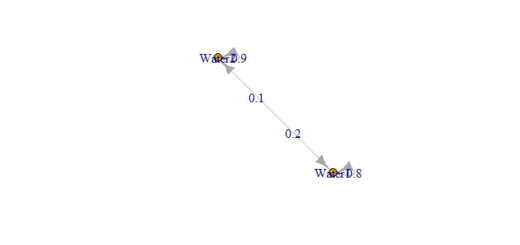Career Potential in Data Science
Career Potential in Data Science, Data science presents virtually limitless career opportunities, yet it remains a challenging field to penetrate, especially if you lack a degree in Computer Science, Statistics, or a related discipline.
Career Potential in Data Science
This guide aims to ease your journey by highlighting the key areas you should focus on and providing rich self-learning resources tailored for aspiring data science professionals.
Remember, the landscape is vast, so feel free to explore additional YouTube tutorials, books, articles, and courses based on your preferences, budget, and available time.
Always keep the required skills for each role in mind.
1. Data Analyst: Turning Data into Insight
As a data analyst, your primary responsibility involves analyzing data to extract insights that influence informed business decisions.
Your toolkit typically includes Excel, SQL, Python, and business intelligence (BI) tools.
Learning and Career Path for Data Analysts
Self-Learning Resources:
- Excel & BI Tools: Master pivot tables, VLOOKUP, and advanced functions in Excel. Leverage Excel Practice Online for hands-on experience. For BI, concentrate on Tableau and Power BI, especially DAX functions in Power BI and advanced dashboarding in Tableau through Tableau Learning and Microsoft Learn.
- SQL: Understand essential SQL concepts like JOINs, aggregation, filtering, and more via platforms like SQLBolt, Mode Analytics, and LearnSQL.com.
- Python: Grasp Python libraries such as pandas and NumPy for data manipulation, and utilize Matplotlib or Seaborn for visualization. Resources include DataCamp, Kaggle, and the book Python for Data Analysis.
- Basic Machine Learning: Familiarize yourself with fundamental ML concepts via Scikit-learn.
Career Growth:
Start as a data analyst and advance to roles like senior data analyst, analytics manager, or even data scientist.
2. Machine Learning Engineer: The Architect of AI Solutions
Machine learning (ML) engineers design, deploy, and optimize ML models, leveraging algorithms and frameworks while focusing on data preprocessing and model evaluation.
Learning and Career Path for Machine Learning Engineers
Self-Learning Resources:
- Python & ML Libraries: Become proficient in scikit-learn, TensorFlow, and PyTorch through specialized courses like Machine Learning Specialization by Coursera.
- Mathematics: Solidify your understanding of linear algebra, probability, and statistics using Khan Academy or textbooks like Pattern Recognition and Machine Learning.
- Model Deployment: Familiarize yourself with tools such as Flask, FastAPI, and AWS.
Career Growth:
You can progress from a machine learning engineer to senior ML engineer, ML architect, or AI specialist.
3. Data Engineer: The Backbone of Data Infrastructure
Data engineers design and maintain the architecture that supports data operations, managing both structured and unstructured data.
Learning and Career Path for Data Engineers
Self-Learning Resources:
- Essential Courses: Take the Data Engineering with AWS or IBM Data Engineering Professional Certificate courses.
- SQL & Databases: Aim for proficiency in relational databases such as PostgreSQL and MySQL.
- Python & Spark: Learn frameworks like Apache Spark for data processing.
Career Growth:
Start as a junior data engineer and work your way up to data architect and cloud data engineer roles.
4. Data Scientist: The Innovator of Insights
A data scientist leverages statistical methods and ML techniques to extract actionable insights from data sets.
Learning and Career Path for Data Scientists
Self-Learning Resources:
- Programming & ML: Learn Python with a focus on libraries like pandas, NumPy, and scikit-learn through resources like Coursera.
- Statistics & Probability: Understand essential concepts with courses on Statistics for Data Science or textbooks like An Introduction to Statistical Learning.
- Data Visualization: Get acquainted with Matplotlib, Seaborn, and BI tools.
Career Growth:
Most data scientists begin their careers as data analysts, transitioning into senior data science roles and further into leadership positions.
5. AI Researcher: Pioneering the Future of AI
AI researchers focus on developing new algorithms and improving existing methodologies in fields like deep learning and NLP.
Learning and Career Path for AI Researchers
Self-Learning Resources:
- Deep Learning: Consider courses from DeepLearning.AI or the Fast.ai specialization.
- Research Papers: Stay updated with breakthroughs in AI by reading research papers on platforms like arXiv.
Career Growth:
Begin as a research assistant or junior researcher, advancing to roles like research scientist or AI researcher within leading tech companies.
Conclusion
Embarking on a career in data science is a significant commitment, and while it requires hard work and persistence, the potential rewards are immense.
By using the right learning strategies and focusing on essential skills, you can navigate your way toward one of these five rewarding career paths.
Remember, the journey may be tough, but with dedication and the right resources, your goals in data science are well within reach.




